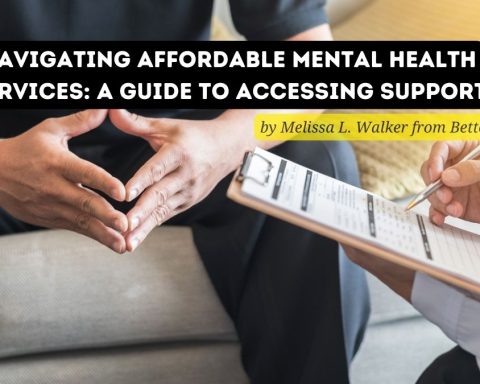Ever had to rush a loved one to the ER because they had constantly been delaying/rescheduling their visit to the doctor? It’s not a pleasant experience, both for the patient and the guardian. Thanks to technology and development in the field of medicine, there are better ways to acquire health care services that can save you from panic-stricken rides to the hospital.
Telemedicine connects patients and medical practitioners via technology, allowing both parties to prioritize health. This ensures timely medical advice that enables the patient to make smart decisions. In fact, studies have shown that telemedicine can improve diabetes management. In the same way, it can help you manage health concerns for yourself and your loved ones. So, how does telemedicine work?
Here are the many ways telemedicine helps in improving patient compliance. Although telemedicine is unlikely to replace the traditional healthcare system anytime soon, it is nevertheless becoming an integral part of it.
Routine Appointments
First and foremost, telemedicine allows patients to book appointments online from the comfort of their homes. Not only this, patients and medical practitioners use online tools for consultation, so no matter where in the world they are present, they can connect whenever required. Patients don’t need to leave their homes and doctors can travel to attend conferences without compromising their patient’s health. VoIP solutions like Skype make a better alternative for one-on-one, face-to-face consultation. There’s still the limitation of physical examination that requires an in-person meeting, but for subsequent visits, both patients and healthcare professionals can benefit immensely from telemedicine solutions.
What reason would you now have to delay that much-needed consultation appointment?
Seamless Follow-ups
The thing about patient compliance is that doctors may routinely ask patients to conduct specific medical tests to make sure their treatment is on track. Traditional medical care implies repeated patient visits which are both time-consuming, tiring, and outright bothersome. Telemedicine is not only making lives easier but also ensuring timely medical help.
Post-test consultation with laboratory results becomes a breeze. In any case, your doctor is possibly hoping to confirm the diagnosis via conclusive tests. You can share these online and mutually decide the next plan of action for better health.
Remote Assistance for Mental Health
Mental health problems are the leading cause of overall disease burden in the world. Depression, anxiety, stress and general imbalance affect pretty much everyone regardless of age, gender or profession. Unnecessary stress in our lives not only is unhealthy but impairs our quality of life as well.
Telemedicine ensures help is available for such individuals without leaving their comfort zones. In any case, considering societal taboos and general unacceptance, it takes a lot of courage to admit you need help for mental health. This mode of health care ensures you have access to it nevertheless.
You don’t necessarily need to find your healer within the city or within the country. Particularly for mental health issues where the physical examination isn’t a primary requirement, you can even connect with medical practitioners residing in other parts of the world. They bring in their unique ways of resolving health issues, helping you overcome invisible obstacles readily.
Medication Follow-ups
So your doctor diagnosed a condition and prescribed medication for it. In the traditional model, you’ll be required to revisit the clinic within a week or so to show if your health has progressed in the right direction. Telemedicine allows you to do so every day without making it the only achievement of the week. We all know how hectic it can be to visit your doctor, particularly if there’s a long queue.
Instead of going through all that hassle, you can connect with your doctor over a ten minute Skype call to communicate how you feel. This ensures better patient compliance. Both the patient and the doctor are equally involved in the recovery process.
Track Record
The good thing about technology is its ability to maintain records seamlessly. Gone are the days when the staff needed to input data into the system manually to keep track of every visit. All your consultations through telemedicine are automatically recorded and tracked. So if you (or your loved one) needs to be hospitalized for some reason or you just want to see your health records, you can do so quickly. This also comes in handy if you’re hoping to consult another doctor or another specialist. Or if you’re moving to another city/country and you’d like to have the local healthcare system sorted out, this is the way to go!
Access to Specialized Consultants
This is possibly the most important and the most substantial benefit of telemedicine. We have medical practitioners all over the world, but their experiences and expertise vary. Mainly when it is about specialists, getting connected with the person of your choice can be quite challenging, not to mention tiring, because their schedules are almost always full. So what do you do when the neurologist you’re looking for isn’t available for the next couple of months?
Telemedicine allows you to connect with specialists all over the world. Someone somewhere will be able to give you a slot, enabling you to take control of your health concerns. This is particularly beneficial for the third world developing countries where the healthcare system isn’t as advanced as other developed countries.
Reduced Exposure
There have been instances where patients with contagious illnesses contaminated their medical practitioners, where both succumbed to their diseases. And as heartbreaking as it sounds, there is a lot at stake when such an incident happens.
Telemedicine ensures such patients have access to medical help through a screen. The doctors do not directly come in touch with such patients, keeping them safe from such a possibility. After all, who would look after the diseased if the healer is down too?
This mode of treatment ensures the purpose is met, the risks are reduced, and patient compliance is monitored.
The whole idea of telemedicine is keeping patients involved in their health regimes. As long as you feel in control of your life and your health, you’re more likely to respond well to treatments, and you’ll be more open to discussions. Healthcare is no longer a one-sided communication; it has to happen over mutually decided terms for better patient compliance and outcomes.








